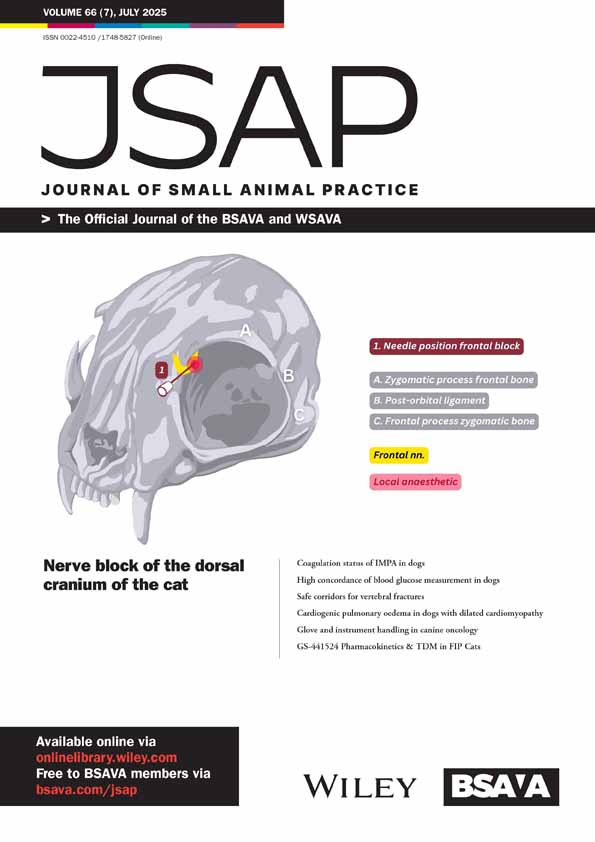Congenital deafness and vestibular deficit in the dobermann
ABSTRACT
A condition characterised by the early onset of vestibular deficit and hearing loss was investigated in the dobermann breed of dog. Affected pups showed behavioural signs of head tilt, circling and ataxia and there was a total absence of vestibular response to rotation or caloric stimulation. Severe deafness, as assessed by brainstem auditory evoked response testing, was present by three weeks of age in all affected animals. The inner ears showed a progressive neuroepithelial type of cochlear degeneration with loss of the auditory sensory cells. In the vestibular system, however, there was no equivalent sensory cell loss and the only abnormal feature was the absence or abnormality of the otoconia in some of the affected animals. Pedigree analysis suggested that the condition was inherited as an autosomal recessive trait.




